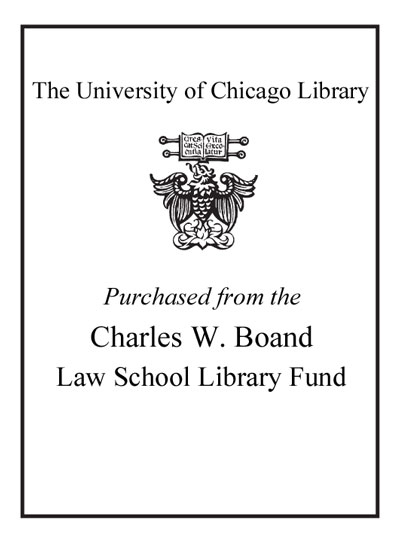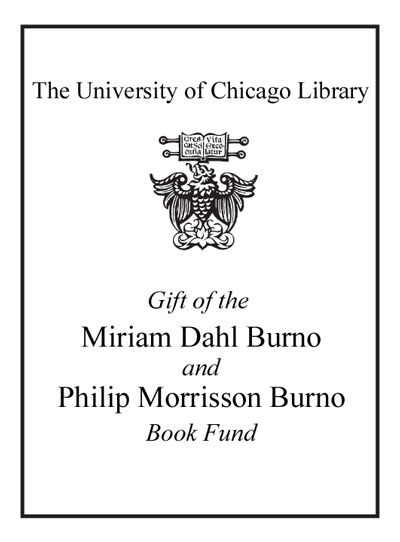Review by Choice Review
There is not a lot in this text that is new, since a number of the chapters were originally published elsewhere and Fish (Univ. of Illinois at Chicago, formerly Duke Univ.) consistently follows the now familiar universal postmodernist canon or ideological political agenda. In order to criticize liberal political ideology as it struggles and fails to provide the necessary clear demarcations to resolve conflicts over free speech and other issues related to interpretations of the US First Amendment, the following are prioritized: particularity over universality, context-bound over neutral, speech over (Platonic) ideas, personal experience over principles, literature (as persuasive rhetoric) over logic. True to form, Fish coyly plays hide and seek with readers, claiming that they cannot discern his position on any issue from what he writes. He employs a strategy throughout the text that he later criticizes in others: "segmenting reality and then placing all the weight on individual bits of it ... to deflect attention away from the big picture." His critical sniping at the tenets of liberalism offers some basis for their reconsideration. It also offers an illustration of the passionate opposition to any use of principle in political debates. All academic levels, and general readers. J. Gough; Red Deer College
Copyright American Library Association, used with permission.
Review by Booklist Review
No stranger to controversy, Fish smashes an idol sacred to conservatives and liberals alike: the principle of government neutrality in cultural disputes. Taking on conservatives, Fish challenges the racial neutrality championed by opponents to affirmative action, arguing that such neutrality serves only to obscure historical inequities crying out for redress. But he pours out his most scalding criticisms on the liberal theorists--from Locke to Rawls--who have formulated the neutralist rhetoric and its undergirding logic. With scant regard for the usual shibboleths of political life, Fish digs down to the internal contradictions of a liberal neutrality premised upon official skepticism toward all orthodoxies--except the orthodoxy of liberal neutrality. By focusing on such episodes as the neo-Nazi march in Skokie, Illinois, and Hustler magazine's obscene parody of Jerry Falwell, Fish confronts readers with the real social harms wrought by a philosophically incoherent abstraction. True liberals will rally to defend the principled neutrality Fish assails, but many readers will welcome his call for an end to doctrinal paralysis. Sure to become a touchstone in debates on political theory. --Bryce Christensen
From Booklist, Copyright (c) American Library Association. Used with permission.
Review by Publisher's Weekly Review
American democracy rests its freedoms and legal procedures on principles that are impersonal and universal (e.g., freedom, equality). A good idea? No, says Fish. He argues vigorously that universal principles actually impede democracy. Counterintuitive as his claim may appear, Fish makes a strong and lucid case. The trouble with principle, he explains, is this: it disregards history, tradition and contexts of every sort that shape understanding. According to FishÄa controversial literary scholar and theorist who has applied his theories of interpretation to the study of lawÄwe can never find a neutral position that will fully transcend our prejudices, commitments and beliefs. And worse yet, high-minded abstractions can be used to mask undemocratic privilege. He offers the current controversy over affirmative action and reverse discrimination as a case in point. Those who agitate for an end to affirmative action usually do so on the principled grounds that it ignores "merit." But what is merit? It describes, says Fish, "whatever qualifications are deemed desirable for the performance of a particular task, and there is nothing fixed about those qualifications." Fish supports affirmative action because he believes we must take into account the history of oppression suffered by the groups that affirmative action is meant to benefit. Yet Fish is no liberal. In fact, he devotes most of his book to the problems entailed in the liberal understanding of freedom of speech and freedom of religion. Liberals, he says, duck behind the comforting fictionÄor "principle"Äthat we are all the same underneath. FishÄhard-nosed, unflinching and persuasiveÄmaintains that differences are real and must be faced squarely without recourse to timeless, abstract principles. His cautiously reasoned argument, not easily dismissed, will excite controversy. (Dec.) (c) Copyright PWxyz, LLC. All rights reserved
(c) Copyright PWxyz, LLC. All rights reserved
Review by Kirkus Book Review
By turns ludicrous and shrewd, a polemic against ``neutral'' principles like free speech, freedom of religion, and nondiscrimination. Continuing his pilgrimage away from his origins as a literary critic, Fish (Dean/College of Liberal Arts and Sciences/Univ. of Illinois, Chicago; There's No Such Thing as Free Speech, and It's a Good Thing Too, 1993, etc.) plays political philosopher here, applying his own brew of postmodern pragmatism to analyses of current public issues. He wants to expose as a sham what he calls ``neutral principle'''''abstractions like fairness, impartiality, mutual respect.'' These, he says, are inherently empty of meaning, which they acquire only when invoked in the service of a ``partisan agenda,'' at which point they are no longer neutral. Fish doesn't mind using these principles when they serve the agenda he favors'left-centrist concerns like enhanced opportunities for minorities and women'but is annoyed when they are used to support causes he opposes, such as the repeal of affirmative- action laws. Largely to discredit the ``hijacking'' of these principles by right-wingers and other foes, he deconstructs neutral principles in many forms: First Amendment law, multiculturalism, religious tolerance, foundationalist philosophies. Many chapters have previously been published as separate articles, and their presentation here is sometimes repetitive. Fish is, nonetheless, an entertaining writer, adept at close reading and handy with a barb (the ACLU, ``that curious organization whose mission it is to find things it hates and then to grow them''). Still, his neo-Machiavellianism will repel anyone who does believe in principle, and his arguments are rife with muddy concepts and self-contradiction. How, exactly, do you tell the difference between ``neutral principle'' (bad) and ``moral principle'' (good)? And how can Fish deny the existence of a neutral point of view while insisting he does so from a neutral point of view? Fish likes to think of himself as appealingly ``provocative'' and ``perverse,'' but the appeal may escape some readers, leaving him merely perverse.
Copyright (c) Kirkus Reviews, used with permission.
Review by Choice Review
Review by Booklist Review
Review by Publisher's Weekly Review
Review by Kirkus Book Review



